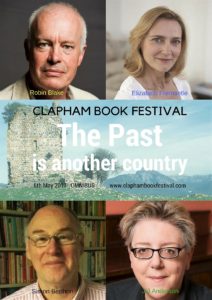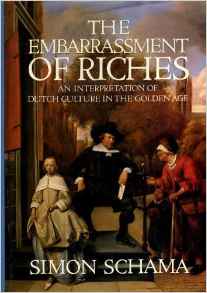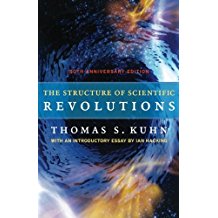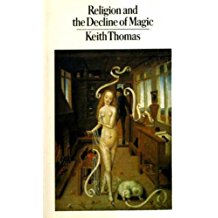 Reading about the past is, for me, an ongoing pleasure. I also set my latest books there. As regular readers of The Story Bazaar will know, I have written one historical novel and am writing a second. So chairing The Past is Another Country discussion at this year’s Book Festival about how we write history, both fictional and non-fictional, is of enormous interest to me. I will be exploring this in a series of articles over the next few weeks. This one is about the writing of non-fiction history.
Reading about the past is, for me, an ongoing pleasure. I also set my latest books there. As regular readers of The Story Bazaar will know, I have written one historical novel and am writing a second. So chairing The Past is Another Country discussion at this year’s Book Festival about how we write history, both fictional and non-fictional, is of enormous interest to me. I will be exploring this in a series of articles over the next few weeks. This one is about the writing of non-fiction history.
There are fashions in writing history, like in writing in general. The late twentieth century emphasis on the ‘narrative’ history-writing tradition, placing the telling of the historical story at the heart of a book, as opposed to concentrating on the discrete analysis of economics, social change and causation ( all necessary in themselves ) amplifies reading pleasure.
I studied history when the ideas of E.P.Thompson and Christopher Hill held sway, or Eric Hobsbaum and Asa Briggs*. Their explorations of past societies, owing much to Marxist theory, focussing on economics and the, then unremarked, working class and offered new and exciting ways of looking at history.
Their detailed and intense dissection of the economic evidence, never boring in the hands of the masters, nonetheless spawned a multitude of dry-as-dust tomes ( I read those too ). Reading such history books was the purview of the scholar and professional historian or history student, not the general reader.
So, for the sake of enjoyment and a wider reach, I heartily welcomed  The Embarrassment of Riches, Simon Schama’s 1987 history of the painting and society of the Dutch Golden Age which seemed to grant importance to narrative as well as facts and analysis. He followed that up in 1989 with Citizens, his history of the French Revolution, in similar style ( see Vive la Revolution ) and this approach was also that of historians such as David Starkey and Tom Holland. I devoured Holland’s Rubicon and read Persian Fire, his history of Xerxes ultimately ill-fated invasion in 480 BCE of the Greek states, in one weekend, so hard was it for me to put it down.
The Embarrassment of Riches, Simon Schama’s 1987 history of the painting and society of the Dutch Golden Age which seemed to grant importance to narrative as well as facts and analysis. He followed that up in 1989 with Citizens, his history of the French Revolution, in similar style ( see Vive la Revolution ) and this approach was also that of historians such as David Starkey and Tom Holland. I devoured Holland’s Rubicon and read Persian Fire, his history of Xerxes ultimately ill-fated invasion in 480 BCE of the Greek states, in one weekend, so hard was it for me to put it down.
None of these books ignore the evidence base, or eschew the objectivity, not to say scepticism, needed to examine primary and secondary sources and the consideration of those who have written on the same topics before. Their spirit is one of historical enquiry, they just give due respect too to the narrative flow.
Yet by imposing a narrative on events, does one, consciously or unconsciously, impose a subjective interpretation which pulls against full understanding. There are many ‘stories’ and to give prominence to one single narrative ignores others. Perhaps relating a narrative is not the best way to inform people about history. (Historiography is alive and well.)
History which examines certain specific narratives, black history, women’s history, class history is, largely, a post-WWII phenomenon as voices previously unheard are considered and written about, which cannot be bad. There is also a post-modern move to a microhistorical approach and the history of the every day. But this risks the fragmentation of history, how does it all come together?
What becomes of the grand historical theorists? I saw  Thomas Kuhn speak at a conference in California in the 1980s. His paradigm shifts of the history of scientific knowledge was my first encounter with the all encompassing historical theory, in this case, how knowledge and the furthering of it changes through time. This is another, different level again.
Thomas Kuhn speak at a conference in California in the 1980s. His paradigm shifts of the history of scientific knowledge was my first encounter with the all encompassing historical theory, in this case, how knowledge and the furthering of it changes through time. This is another, different level again.
Nonetheless, the ease of reading narrative-based history probably explains the rise in general popularity of the history book at the end of the twentieth and start of the twenty-first century. In 2010 we bought almost 5.4m copies, an increase of 45% and growth of more than double the publishing industry average. Admittedly, that has now slowed, with fewer books commissioned and advances down ( sales of printed history books fell by 5% in 2014 and went down again last year ).
Popularity has brought other pressure. Sir Keith Thomas ( his Religion and the Decline of Magic was another of my early reads ) has criticised the alacrity with which young historians become ‘Telly Dons’. We can all name our favourites and television is a sure way to higher sales figures. Thomas’ concern is that historical research is ‘jazzed up’ or ‘dumbed down’ for the TV market in the attempt to establish a profile and a brand. Once established the rewards are great.
the Decline of Magic was another of my early reads ) has criticised the alacrity with which young historians become ‘Telly Dons’. We can all name our favourites and television is a sure way to higher sales figures. Thomas’ concern is that historical research is ‘jazzed up’ or ‘dumbed down’ for the TV market in the attempt to establish a profile and a brand. Once established the rewards are great.
From the seminar to the book signing, to an extent twas ever thus. I wonder how just much history books will feature at this year’s London Book Fair? It’s taking place in a fortnight’s time. I’ll report back.
*My own reading c. 1979-85 included The Making of the English Working Class by E.P.Thompson, The Causes of the English Civil War by Christopher Hill, The Age of… books by Eric Hobsbaum and The History of Broadcasting... books by Asa Briggs. I got myself a history degree and a life-long love of things historical, but must apologise to those history professionals who are far better informed (and much more up to date) about history writing than I am.
If you enjoyed reading this article you might also enjoy The Wrong Saint Novels Historical From Gutenburg to Google


 RSS – Posts
RSS – Posts